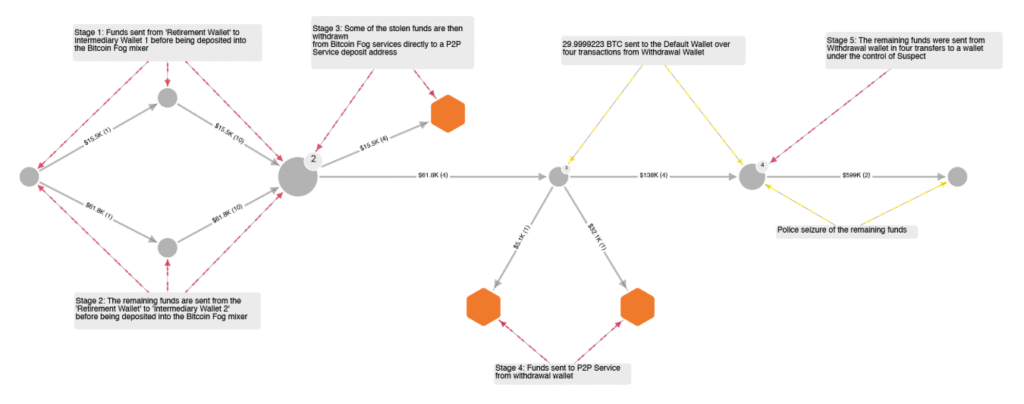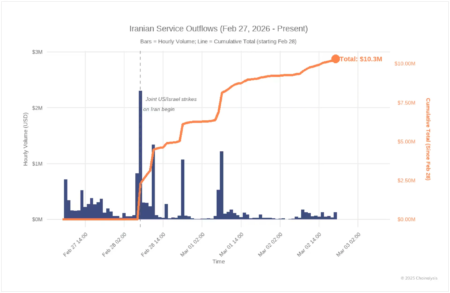Former NCA Officer Jailed for Bitcoin Theft: A Lesson in Accountability
Former UK National Crime Agency (NCA) officer Paul Chowles has been sentenced to five years and six months in prison for stealing 50 BTC (Bitcoin) during an investigation into dark web criminals. This incident, which has a current value of about £4.4 million ($5.9 million), emphasizes the importance of accountability within law enforcement agencies. Chowles, age 42 from Bristol, was convicted after a thorough investigation by Merseyside Police, highlighting that no one, including those in positions of authority, is above the law.
Background of the Crime
Chowles’s criminal actions stemmed from his role in a joint NCA-FBI operation that targeted UK-based dark web criminals, including the notorious Thomas White, who was sentenced in April 2019. As an NCA analyst tasked with managing seized cryptocurrencies, he exploited his position to pilfer funds for personal gain. In May 2017, Chowles stole 50 BTC out of 97 BTC that were confiscated during investigations. By splitting the stolen cryptocurrency into smaller amounts, he attempted to cover his tracks, aiming to make it appear as if the funds were legitimately acquired.
Legal Proceedings and Charges
Following the discovery of Chowles’s misconduct, the UK’s Crown Prosecution Service (CPS) authorized 11 charges against him for various offenses, including theft and concealing criminal property. In May, Chowles pleaded guilty to several charges, including theft, which led to his conviction. The case illustrates the procedural integrity and diligence of the CPS, which assesses evidence collected by law enforcement agencies to determine if charges are warranted. The fight against serious crime often hinges on these foundational legal processes that hold individuals accountable for their actions.
The Role of Chainalysis
Prominent blockchain analysis firm Chainalysis played a crucial role in uncovering Chowles’s theft. By employing advanced analytics tools, they traced the movements of the stolen 50 BTC, even as Chowles attempted to launder the funds through a mixing service known as Bitcoin Fog. The collaboration between Chainalysis and law enforcement agents proved vital, as it helped recover over $1.3 million worth of Bitcoin and provided compelling evidence against Chowles, cementing the principle that blockchain transparency can act as a powerful tool in combating financial crimes.
Shifting Crypto Regulations
The landscape of cryptocurrency regulations in the UK is continuously evolving. In April 2024, the UK government granted increased powers to the NCA and police, enabling them to seize and freeze crypto assets without requiring an arrest. These reforms send a clear message to criminals: the government is committed to preventing crime and ensuring that illicit activities do not pay off. The implications of these laws could potentially deter future offenses, reinforcing the legitimacy of law enforcement’s efforts in tackling organized crime in the crypto space.
Final Thoughts: The Importance of Accountability
The case of Paul Chowles serves as a warning and a reminder of the importance of ethical conduct in law enforcement. It demonstrates that even those tasked with upholding the law can falter, but accountability mechanisms are in place to address such violations. As cryptocurrency evolves and integrates further into the financial system, the need for robust oversight, along with cooperative efforts from forensic analysis firms, is more critical than ever. By maintaining strict accountability, law enforcement agencies can ensure public trust and continue to combat the complex challenges posed by organized crime in the digital age.
In summary, the story of Paul Chowles not only exposes the failings of an individual within a respected agency but also highlights the systemic measures in place to curtail corruption and criminality, particularly in the burgeoning field of cryptocurrency. The advances in blockchain analysis and regulatory reforms signal a brighter future in the fight against crime.
















